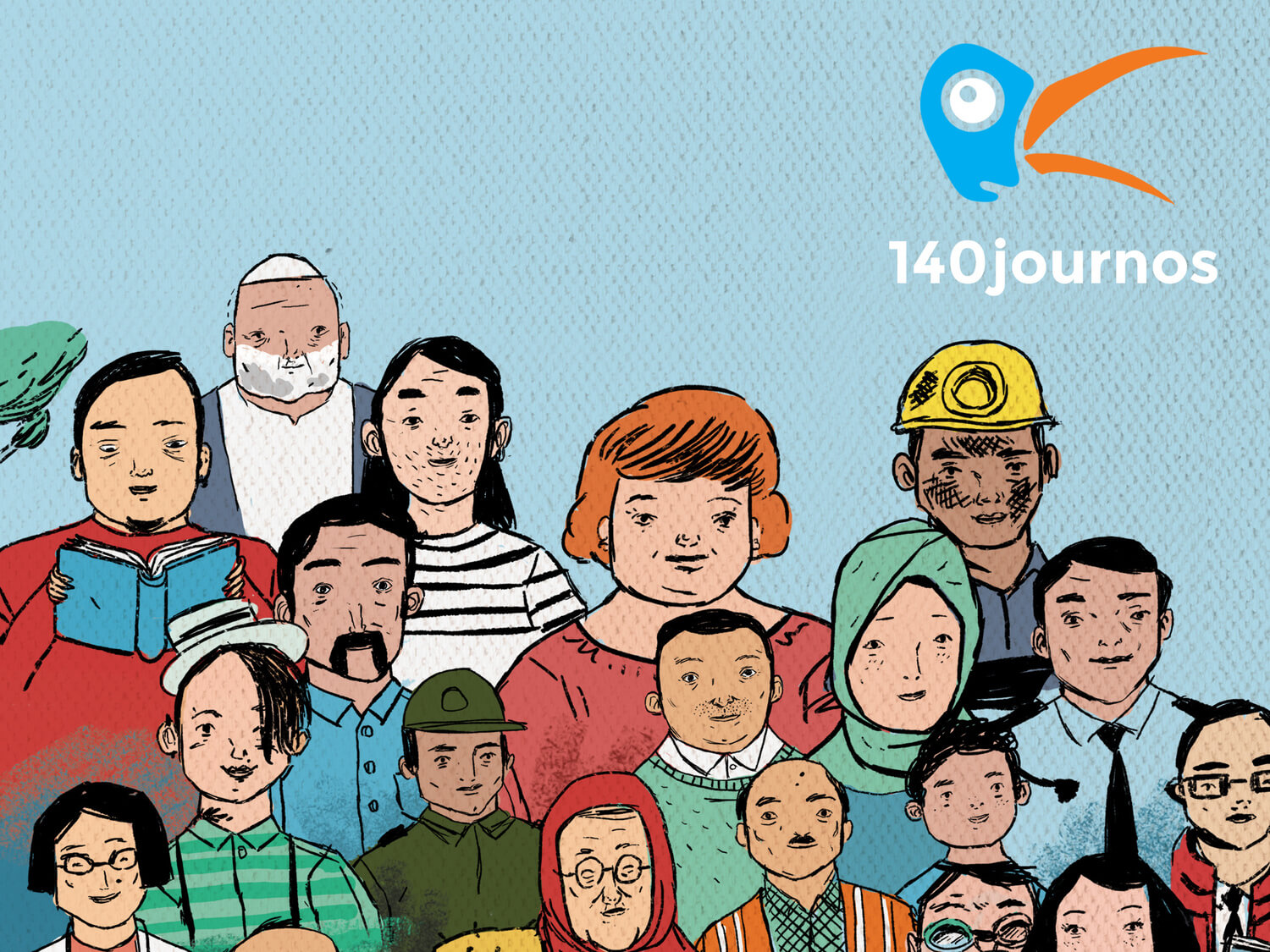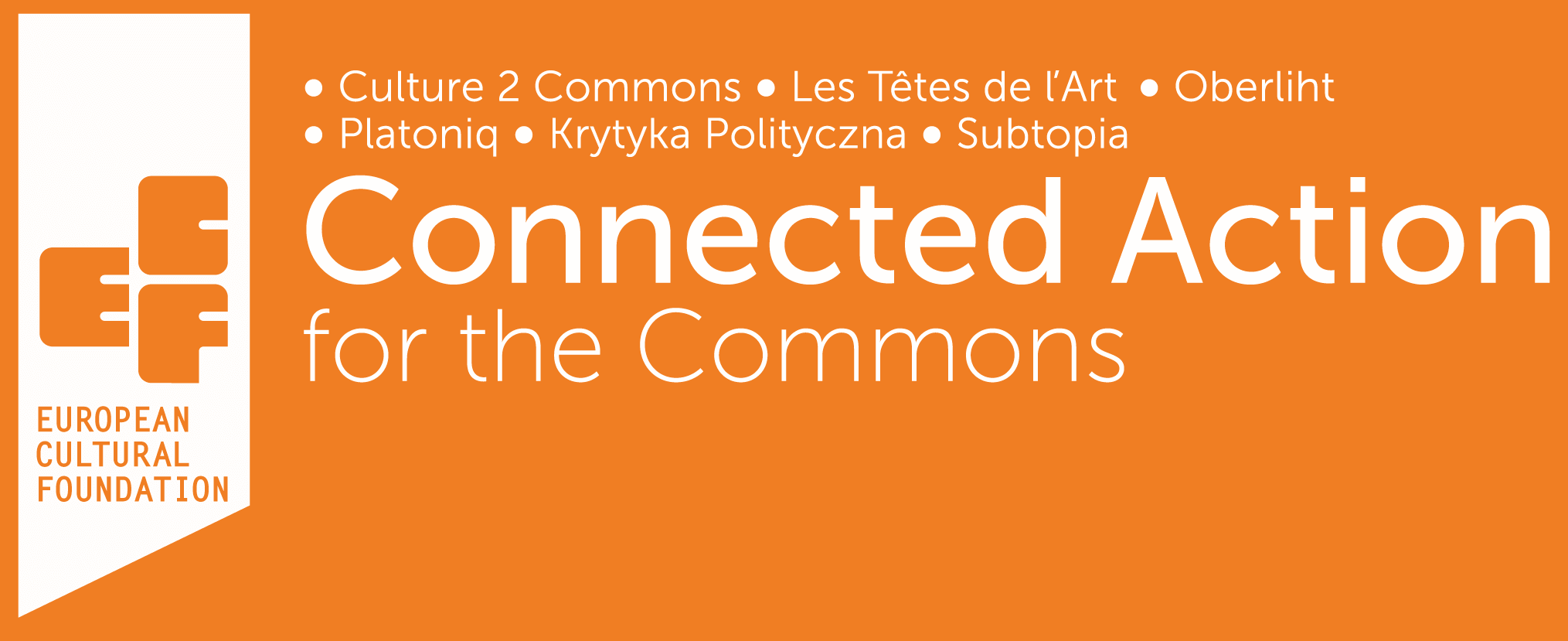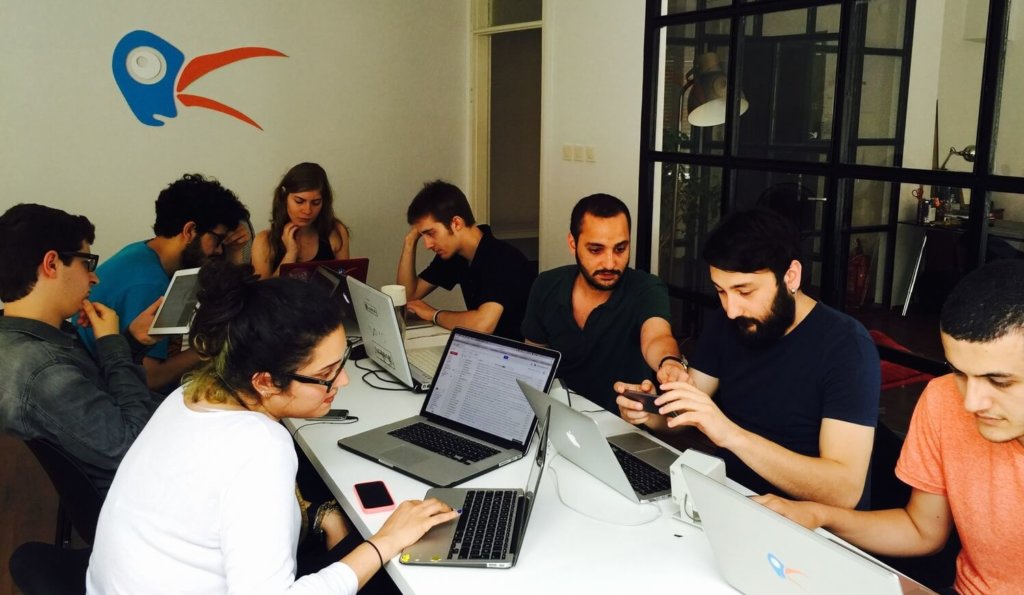“I care about the establishment of a community that shares newsworthy information as a habit and the R&D grant is helping us make this real. Slowly but permanently!”
140Journos has been highly successful in motivating citizen engagement and participation in Turkey and covering previously restricted subjects. How do you try to ensure the accuracy of reports from your network?
This hasn’t been achieved overnight, for sure. The pace of change in Turkey’s agenda and the rise of social media for communication have played immense effect in 140journos’s progress. Mainstream media has seen no evil, heard no evil, spoken no evil and therefore this responsibility has been distributed to a variety of parties of the society and primarily to “active citizens”. After 140journos’s launch in 2012, we had difficulties motivating public opinion in regards to creating their own news and sharing it online yet this hasn’t become real until the massive Gezi Park protests back in mid-2013. From that point on, opposition has gotten many different forms and the same old opposition has been dispersed by young people of my age. We now serve as a news outlet and our news have to be accurate. It’s weird to see that 140journos’s record of accuracy has been way better than many mainstream and alternative media. Being online doesn’t mean that you should cut off all ties with offline. Sometimes a data you search isn’t online and you have to make sure whether it’s authenticated or not through personal communication, telephone. We use a mixture of all communication opportunities possible to verify a content including technological and analogue ways. Thanks to the verified contributors across country, a great deal of broadcast comes half-way verified and we do the double check before it goes online. WhatsApp is handy in everyday broadcast thanks to its geolocation facility in addition to great media-sharing solutions.
During the recent elections you produced an interactive map which showed the vote count in each district in real time, together with statistics on previous elections and reports of electoral fraud. What has been the response to this mapping exercise?
In Turkey’s June 2015 elections, 140journos introduced its new brand identity system, some new facilities and interfaces. We’re now way more than a Twitter-based citizen journalism network. Mapping is one other new facility introduced. Sometimes the data is so complicated or hard-to-visualize on our mind that we need the parameters to geolocate it and understand when it took place. Maps provide these two. We began with the visualization of real-time and retrospective election results that allowed people to compare different public data with different dimensions of election results. Seeing one political party’s vote intensity and statistic showing opposition to Turkey’s EU membership help people contextualize an issue better. We also teamed up with Turkey’s biggest social media platform, Ekşi Sözlük, through which we heard a lot of positive comments on the new mapping facility. So far, so good. We hope to release 1-2 maps weekly on the issues that matter for the society.

You have talked about the importance of online tools for building the sustainability of your network of citizen journalists. How do you combine face to face training with online support and documentation?
This is the year 2015 and there are numerous great tools that allow us to share newsworthy information with the public. Our decision was not to invest more resources to building infrastructures but to link the existing ones to each other in a way to make sense for communities to share news with each other. After that, helping new people gain the habit of making their own news and sharing it with public would make much more sense. With the fund provided by ECF, we visit different cities in Turkey and tell people that their smart device gives them more opportunities than they think. You have a problem in your local area? Why not share and raise voice with more people? These are the tools and this is how you can use it. We train them in workshops, take them to an exercise on the ground and get contact information to pursue communication after we leave. We stay in touch through Facebook, Twitter, Whatsapp and we indeed become friends. Having a lot of friends automatically makes this system a community. We think the best way for real and permanent change in habits is to drag people to a community.
How far do you think citizen journalism can go in replacing traditional news reporting or opening up subjects which the mainstream media has been unable or unwilling to report?
Due to eco-politics and nature of mainstream media, it’s for sure that we will never hear or see the truth from them. They will never be saviors. Rather than terminology, I love to discuss this potential through a different perspective. My generation loves to have multiple identities in any aspect of life and as we grow up. We are so many. What I see in people of my age, twenty-somethings, is that we have a disloyalty towards centralized structures as a default. We care about communities much more. If we achieve to establish and sustain a community of people preferring to pass on what they get through, observe and experience -which are called ‘news’-, we can bypass mainstream media.
“We now have a big, great idea to respond to the lack of high-quality, categorized, publicly-available data in Turkey with our new community-based software. In some sense, it will be a crowdsourced way of data journalism. I find the structure of media very problematic and think that independent citizens through communities can carry it out. ”
How conscious are you of the political responsibility – and potential dangers – that come with challenging the official version of events?
I have never thought that what we do bears any kind of danger. We learn about an issue, verify and pass it on to public opinion with a neutral language that never says more than what the proving media shows or says. In many events that tension was high, 140journos felt a ‘political’ responsibility more than a citizen and preferred to do it by verifying content, letting people know. We have been trying to grow a community, the best way for us to sustain a good, creative idea and I see no danger in that. However, this is definitely a big responsibility.
How did attending ECF’s Idea Camp in 2014 help you to develop your plans? And what difference has the R&D grant made to your ability to develop 140 Journos?
I met a lot of great people at ECF’s Idea Camp. The best revelation over there was that, even though the subject we were concerned with were different, the fundamental issues were the same. I got inspired by the presence of people like that. Attending Idea Camp was great to hear a lot of feedback before the idea went alive. I made a lot of corrections in the course of the project thanks to them. I care about the establishment of a community that shares newsworthy information as a habit and the R&D grant is helping us make this real. Slowly but permanently!
What are your plans for the future of 140Journos?
Increasing the volume of the content in our new format. Changing the way people consume news around me. Convincing them to create their own. Making news more colorful, diverse. Introducing new ways to differentiate conventional news delivery. Stealing the whole role of mainstream media and distributing it to a community of people. Stealing the role from the state just like 140journos did in 2014 with its software that was a community-based alternative to official vote counting mechanism. We now have a big, great idea to respond to the lack of high-quality, categorized, publicly-available data in Turkey with our new community-based software. In some sense, it will be a crowdsourced way of data journalism. I find the structure of media very problematic and think that independent citizens through communities can carry it out. I want to get to know my country better, people around me better and that’s the biggest motivation in doing this because mainstream media will never tell me about these accurately.

